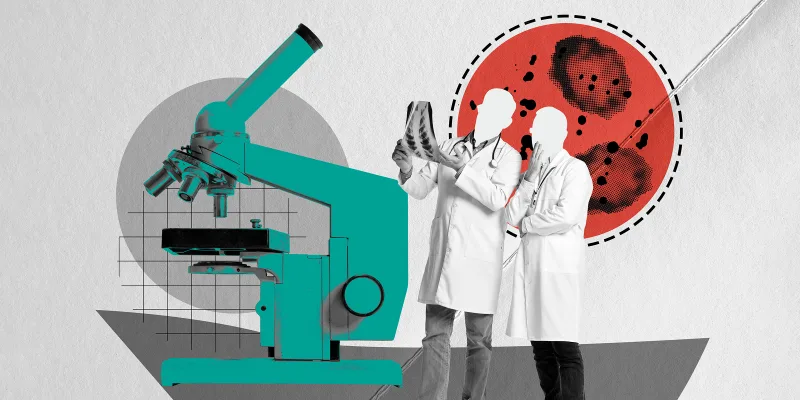
Some say 2020 is the year of disasters. Others say it's the year of change. They all are right. But to me, 2020 is the year of anger. In 2020, anger overtook the world, setting us against each other and consuming us from inside.
The right is angry with the left. The social distancers are angry with the beach-goers. The mask wearers are angry with the mask haters. The protesters are angry with the system.
Like a lid on a boiling pot, the lockdown further increased the pressure. The upcoming elections turned up the heat to the point that strangers feud on social media, old friendships fall apart, and loving families spew hate over the dinner table.
What does that mean for us, the healers? We already struggle with COVID-19, the lockdown, the lack of PPE, the racism, and the riots.
First, we need to recognize that we are not immune. Whether you're Black or white, Democrat or Republican, whether you see it or not, you are likely to be infected with the anger that consumes us all. Denying your anger won't make it go away. It will only make it harder to manage. Whether you agree or not, the endless stream of bad news shortened our fuse, too.
Since we live and work on the front line, we don't have the luxury of retreating to connect with our inner wisdom and get in touch with our feelings before acting. In our profession, we need to deal immediately with whatever comes in through the door: codes, disease, accidents, and angry people.
Our patients are anxious and worried. They hate to wait; they loathe the mask; they may get impatient, unreasonable, even violent. They want their family in their room. They ask for a COVID-19 test for their sprained ankle. They request hydroxychloroquine just in case — besides the Z-pak for their cough.
Our nurses are angry. Many home-school after their shift, instead of sleeping. Their spouse got furloughed, the mortgage is due, and they worry about their parents in the nursing home. They deal with angry patients, even more than we do. And it's just so damn hot under all that PPE.
Our colleagues are angry. They're exhausted by fighting COVID-19; they avoid their family, for fear of getting them sick; their hours got cut, and money is running short; their travel plans fell apart.
Your family is angry too, cooped in the house since forever. The kids got the heebie-jeebies, and your spouse is tired of watching them, eating in, watching bad news, and going without a haircut.
So, in this world consumed by anger, how can you stay calm, stay safe, and remain professional?
Recognize
The first thing to do is to recognize your anger. It's essential to manage it before you blow up on the floor, making everyone think you went nuts. Don't say yes to unreasonable requests, like bad shift changes or writing prescriptions you know you shouldn't. Smile, decline, and move on. Otherwise, sooner or later, your frustration will catch up with you.
Rest
Tired people have a short fuse. When you're rested, it's easier to be kind to the patient coming for a Viagra script while you're managing a code. Make sure you go to the bathroom when you need to, instead of rushing to see the next patient. A full bladder is not your friend. Relieving the pressure and breathing for a minute will help you stay cool. And when you feel you're losing it, take a time-out, even if it's just the bathroom, and breathe. Learn circular breathing, meditation, or relaxation.
Replenish
Don't go "hangry." Plan ahead. Smoothies, fruit, cold pizza — whatever you can manage. Not coffee. Coffee is not food. It is life, but not food. Work out — the more exhausting, the better. Kickboxing and martial arts work for me, but running, hiking, or biking will do. Get rid of that adrenaline buildup. Laugh. Laughing goes a long way in diffusing tension and softening a lousy situation. Few things are so bad that you can't laugh at them. Talk to somebody: a friend, a spouse, or a coach. Investing in a career/life coach can be cost-effective. A few years ago, I suffered from burnout. I hired a coach for six sessions. I only needed four. Work got easier, life got better, and I rekindled my love for my profession. Do something fun. Not the news, or violent movies. Make a date with yourself: visit a museum, plant a tree, play the violin, take a photography class, go parasailing. Nourish your soul.
Prepare
Practice compassion and gratitude. Remember how lucky you are to be who you are and have what you have, and remember how hard it must be for those who don't. Plan ahead and check your malpractice. The health care honeymoon is about to be over. The time when health care workers were heroes is about to be over. Soon enough, we'll be talking about how the medical system failed COVID-19 victims. Cynical, I know, but bad things happen to good people. Be prepared, and ask for help before it's too late. Substance abuse, suicide — they're both higher in the health care profession than just about anywhere else. Doctors commit suicide at a higher rate than any other profession. One of the reasons — besides the stress of the job — is that we're so bad at asking for help. So cut yourself some slack and reward yourself for good behavior. Be proud for keeping calm, and don't berate yourself for losing it. You're only human, after all.
Remember that this too shall pass. Hold on to the things you cherish — your family, your career, your sanity, and wait for the times to change. They will.
Rada Jones is Doximity Fellow and an ER doc in Upstate NY, where she lives with her husband and his deaf black cat Paxil. She authored three ER thrillers, Overdose, Mercy and Poison, and “Stay Away From My ER,” a collection of medical essays.
Click here to see more perspectives on COVID-19 from the Doximity network.
Click here for up-to-date news about COVID-19 on Doximity.







